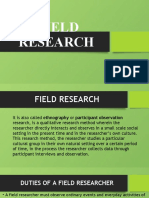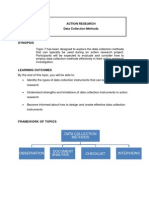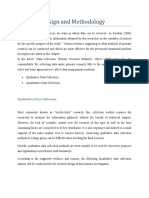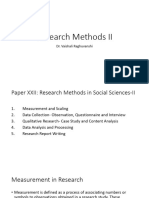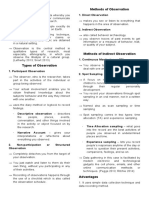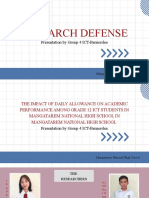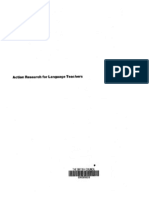0% found this document useful (0 votes)
35 views29 pagesField Methods Lecture
Field Methods in Psychology focuses on the systematic collection and analysis of data regarding human behavior in natural settings. It encompasses various research types, including applied, basic, quantitative, and qualitative research, and employs methods such as direct observation, participant observation, ethnography, qualitative interviews, and case studies. While field research offers deep insights into social contexts, it also presents challenges such as potential biases and the time-intensive nature of the process.
Uploaded by
John Peter CarbonelCopyright
© © All Rights Reserved
We take content rights seriously. If you suspect this is your content, claim it here.
Available Formats
Download as PPTX, PDF, TXT or read online on Scribd
0% found this document useful (0 votes)
35 views29 pagesField Methods Lecture
Field Methods in Psychology focuses on the systematic collection and analysis of data regarding human behavior in natural settings. It encompasses various research types, including applied, basic, quantitative, and qualitative research, and employs methods such as direct observation, participant observation, ethnography, qualitative interviews, and case studies. While field research offers deep insights into social contexts, it also presents challenges such as potential biases and the time-intensive nature of the process.
Uploaded by
John Peter CarbonelCopyright
© © All Rights Reserved
We take content rights seriously. If you suspect this is your content, claim it here.
Available Formats
Download as PPTX, PDF, TXT or read online on Scribd
/ 29
































